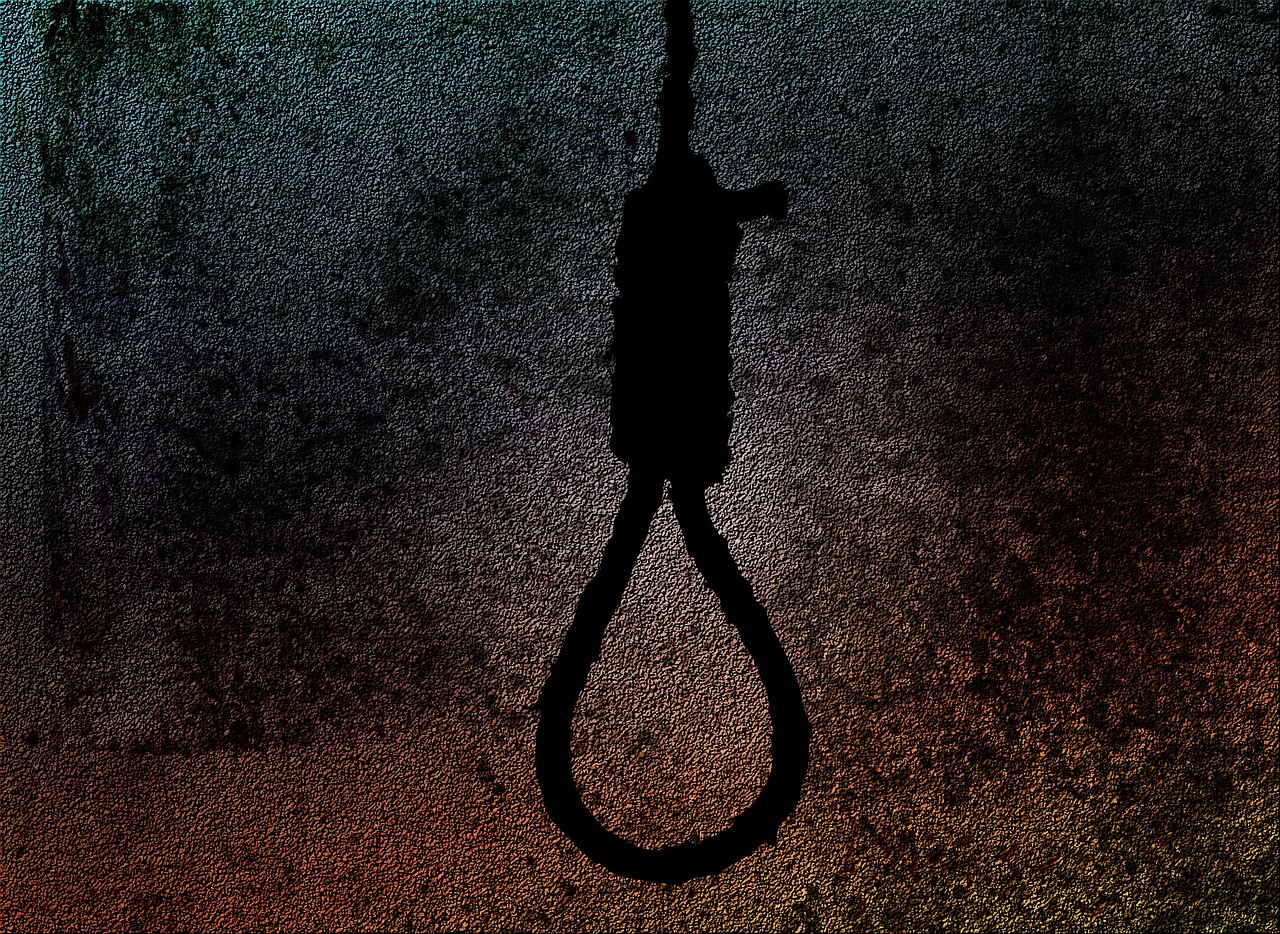Indian courts are constantly under pressure to impose capital punishment for sexual offenses, despite little to no proof that capital punishment directly deters crime in our society. But a more effective solution to sexual violence has already been found in the rest of the world: rehabilitation.
The discourse around sexual violence in India has been stirred up after the recent incidents of rape of a 19-year old and a 6-year old girl in Uttar Pradesh and Punjab respectively. The discussion thus far has been focused on the degree of punishment to be meted out to the accused, rather than the effectiveness of such punishment.
This can be attributed to the fact that the sensitivities surrounding sexual violence often dominate the debate that follows after each such crime. These discussions typically focus on delivering swift penal action against the criminal – an objective that stems from the related problem of a slow-moving judiciary in India. These debates tend to overshadow the major issues that arise from sexual crimes, such as the psychological effect on the victims or survivors, and the ensuing repercussions on society.
Substituting Death Penalty With Rehabilitative Reform
Present-day Indian society largely demands its justice system to dispense capital punishment for sexual crimes – with little or no delays – as it is viewed to be the harshest penalty under our criminal laws. Our penchant for delivering instant justice was evident in the case of the rape and murder of a veterinarian doctor in Hyderabad, where the extra-judicial killings of the accused were celebrated. Since then, the state government has even incorporated amendments to the Protection of Children from Sexual Offences Act and the Indian Penal Code to make existing punishments harsher and accommodate capital punishment in non-homicidal rape cases.
The death penalty has become our society’s characteristic response to cases of sexual violence. It reflects a mindset that favours retributive and deterrent forms of punishment for acts of sexual violence and disregards the need to rehabilitate the criminal.
However, in my opinion, the death penalty has little or no deterrent effect. For instance, the infamous Nirbhaya convicts were sentenced to death in 2013. Yet, in the same year, the horrific Shakti Mills gang rape took place in an equally or more heinous manner. Data from the National Crime Records Bureau (NCRB) indicates that crime rate per 100,000 women increased from 57.9 percent in 2017 to 58.8 percent in 2018 and 62.4 percent in 2019 – despite the death penalty being awarded to convicts.
As former United States judge, H. Lee Sarokin, said, “In my view, deterrence plays no part whatsoever. Persons contemplating murder do not sit around the kitchen table and say I won’t commit this murder if I face the death penalty, but I will do it if the penalty is life without parole. I do not believe persons contemplating or committing murder plan to get caught or weigh the consequences.”
The ineffectiveness of the death penalty is also seen in crime statistics, as countries that rely on the death penalty seem to have a higher crime rate than countries that have abolished the death penalty. For instance, ever since Canada abolished the death penalty in 1976, its murder rate has continuously declined and was at an all-time low in 2016. Thus, the death penalty can be seen as nothing but a placebo for the public’s conscience. In reality, the death penalty does nothing to truly protect society or reduce crime.
Moreover, even philosophically, it is fair to say that the state should not have the ability to award the death penalty to its citizens. In his famous work, The Idiot, Fyodor Dostoevsky said, “To execute a man for murder is to punish him immeasurably more dreadfully than is equivalent to his crime. A murder by sentence is far more dreadful than a murder committed by a criminal.” The death penalty is inhumane and merely legitimises and celebrates cruelty by the state in public sight. The death penalty is a blatant aspersion on human dignity and the right to life, and contrary to popular belief, it does little to deter sexual crimes.
On the other hand, I believe that punishment designed to ensure sound rehabilitation of the criminal back into society is the more dignified way to deter sexual crimes, and should be promoted as the prominent correctional measure for sexual offenders.
Rehabilitative programs focus on helping offenders take onus and liability for the offences they’ve committed. They are able to uncover their psychological and behavioural conduct through guided retrospective exercises to examine and understand why they committed a specific sexual offence – and their mindset while committing the said offence. These programs can successfully develop and modify the mindset of the offender. A significant step in rehabilitation includes inducing remorse for the harm caused to the victim and/or survivors.
Lastly, offenders are helped to develop prosocial behaviour and create meaningful life goals to help them respect and contribute to society. Thus, rehabilitation helps reorient offenders with new behavioural and psychological skills and understanding, so that they can reintegrate back into society. Rehabilitation also decreases the likelihood of the offender committing further offences.
Correctional programs rooted in rehabilitation are based on psychological research conducted to understand why offenders commit heinous crimes. These studies are constantly evolving, and their outcomes have been meaningfully used in many nations like South Africa, Japan and New Zealand, where rehabilitative programs for sexual offenders have been introduced through correctional facilities.
Various research studies conducted on rehabilitated offenders have shown concrete evidence that when offenders undergo rehabilitation programs, they are less likely to re-offend – or commit crime again – than those who didn’t go through these programs. In the United Kingdom, the tendency of convicted criminals to re-offend has fallen by 50 percent, and in Norway, it has fallen by 20 percent in the last two years, owing to these programs. In South Africa, where reoffending rates were 95 percent previously, the same has been reduced by at least 29 percent because of educational rehabilitation programs.
Death Penalty Merely Hides the Inadequacy of Indian System
Despite this concrete experimental evidence from the developed world, there is still very little conversation in India regarding the implementation of similar rehabilitation programs in our prisons.
Nonetheless, recent efforts do indicate that, on a public policy front, India is attempting to reimagine its prison system into a ‘correctional facility’ by implementing rehabilitation programs and providing educational sessions, vocational training, etc. for the inmates. (Correctional facilities are a different form of prison; they focus on the rehabilitation of convicts by conducting different correctional programs and are used for the long-term confinement of any convict.)
Although our prisons are attempting to incorporate rehabilitation as their main policy objective, we are yet to implement it extensively in correctional facilities at the ground level, and the ones in existence at the moment suffer from a few shortcomings. The present concern is that the rehabilitative programs in our prisons are neither developed fully nor implemented throughout all facilities. Other hindrances include lack of resources, regressive social discourse, etc.
On the other hand, the judiciary in India is constantly under pressure to impose capital punishment for sexual offenses, while there has been little to no proof that capital punishment directly deters crime in our society.
Although rehabilitation programs may not guarantee the absolute prevention of sexual offences immediately, they can guarantee an improvement in social behaviour and the protection of future generations. The redesign needed in Indian correctional facilities, to attain the objective of true rehabilitation, is indeed enormous.
It will be challenging to transform the present Indian penal system to one that is rehabilitative – and to also successfully amend the laws on capital punishment. However, we must note that, in our inability to challenge and strike down the death penalty, we are permitting the state to continue abandoning its obligation to ensure meaningful social reform by covering it up with a quick-fix remedy that does little to change the state of affairs.
Kumar Kartikeya is a student of law. His areas of interest include public policy, constitutional law and political science.


